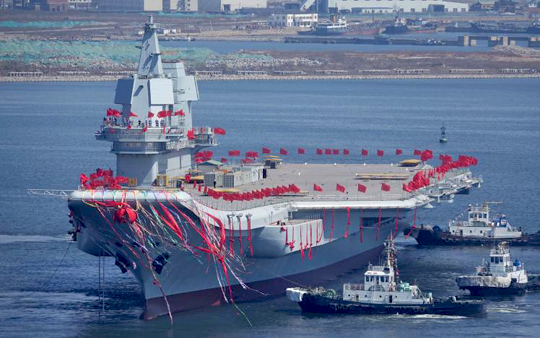Washington, Jun 1: Police fired tear gas outside the White House late Sunday as major US cities were put under curfew to suppress rioting as anti-racism protestors again took to the streets to voice fury at police brutality.
With the Trump administration branding instigators of six nights of rioting as domestic terrorists, there were more confrontations between protestors and police and fresh outbreaks of looting.
Violent clashes erupted repeatedly in a small park next to the White House, with authorities using tear gas, pepper spray and flash bang grenades to disperse crowds who lit several large fires and damaged property.
Local US leaders appealed to citizens to give constructive outlet to their rage over the death of an unarmed black man in Minneapolis, while night-time curfews were imposed in cities including Washington, Los Angeles and Houston.
One closely watched protest was outside the state capitol in Minneapolis' twin city of St. Paul, where several thousand people gathered before marching down a highway.
"We have black sons, black brothers, black friends, we don't want them to die. We are tired of this happening, this generation is not having it, we are tired of oppression," said Muna Abdi, a 31-year-old black woman who joined the protest.
"I want to make sure he stays alive," she added in reference to her son, aged three.
Hundreds of police and National Guard troops were deployed ahead of the protest.
At one point, some of the protestors who had reached a bridge were forced to scramble for cover when a truck drove at speed after having apparently breached a barricade.
The driver was later taken to hospital after the protestors hauled him from the vehicle, although there were no immediate reports of other casualties.
There were other large-scale protests in cities including New York and Miami.
Washington's mayor ordered a curfew from 11:00 pm until 6:00 am, as a report in the New York Times said that President Donald Trump had been rushed by Secret Service agents into an underground bunker at the White House on Friday night during an earlier protest.
Stores ransacked
Large-scale violence has rocked many US cities in recent days, and looters ransacked stores in a neighborhood of Philadelphia on Sunday.
In the Los Angeles suburb of Santa Monica, looting was reported at stores in a popular beachside shopping center.
Officials in LA -- a city scarred by the 1992 riots over the police beating of Rodney King, an African-American man -- imposed a curfew from 4:00 pm Sunday until dawn.
"Please, use your discretion and go early, go home, stay home and help us make sure that those who want to change this conversation from being about racial justice to be about burning things and looting things, don't win the day," the city's mayor Eric Garcetti said on CNN.
The shocking videotaped death last Monday of an unarmed black man, George Floyd, at the hands of police in Minneapolis ignited the nationwide wave of outrage over law enforcement's repeated use of lethal force against unarmed African Americans.
Floyd stopped breathing after Minneapolis police officer Derek Chauvin knelt on his neck for nearly nine minutes.
Chauvin has been charged with third-degree murder and is due to make his first appearance in court on Monday. Three other officers with him have been fired but for now face no charges.
Governor Tim Walz has mobilized all of Minnesota's National Guard troops -- the state guard's biggest mobilization ever -- to help restore order.
Police fired tear gas and stun grenades to clear streets of curfew violators Saturday night in Minneapolis.
Walz extended a curfew for a third night Sunday and praised police and guardsmen for holding down violence. "They did so in a professional manner. They did so without a single loss of life and minimal property damage," he said.
"Congratulations to our National Guard for the great job they did immediately upon arriving in Minneapolis, Minnesota, last night," President Donald Trump tweeted, adding that they "should be used in other States before it is too late!"
The Department of Defense said that around 5,000 National Guard troops had been mobilized in 15 states as well as the capital Washington, with another 2,000 on standby.
The widespread resort to uniformed National Guards units is rare, and it evoked disturbing memories of the rioting in US cities in 1967 and 1968 in a turbulent time of protest over racial and economic disparities.
Trump blamed the extreme left for the violence, saying he planned to designate a group known as Antifa as a terrorist organization.
"The violence instigated and carried out by Antifa and other similar groups in connection with the rioting is domestic terrorism and will be treated accordingly," added Attorney General Bill Barr.
'A nation in pain'
Atlanta Mayor Keisha Lance Bottoms said Trump, who has often urged police to use tough tactics, was not helping matters.
"We are beyond a tipping point in this country, and his rhetoric only enflames that," she said on CBS.
Joe Biden, Trump's likely Democratic opponent in November's presidential election, visited the scene of one anti-racism protest.
"We are a nation in pain right now, but we must not allow this pain to destroy us," Biden tweeted, posting a picture of him speaking with an African-American family at the site where protesters had gathered in Delaware late Saturday.
Floyd's death has triggered protests beyond the United States, with hundreds rallying outside the US embassy in London in solidarity.
"I'm here because I'm tired, I'm fed up with it. When does this stop?" Doreen Pierre told AFP at the protest.
In Germany, England football international Jadon Sancho marked one of his three goals for Borussia Dortmund against Paderborn by lifting his jersey to reveal a T-shirt bearing the words "Justice for George Floyd".






Comments
Add new comment